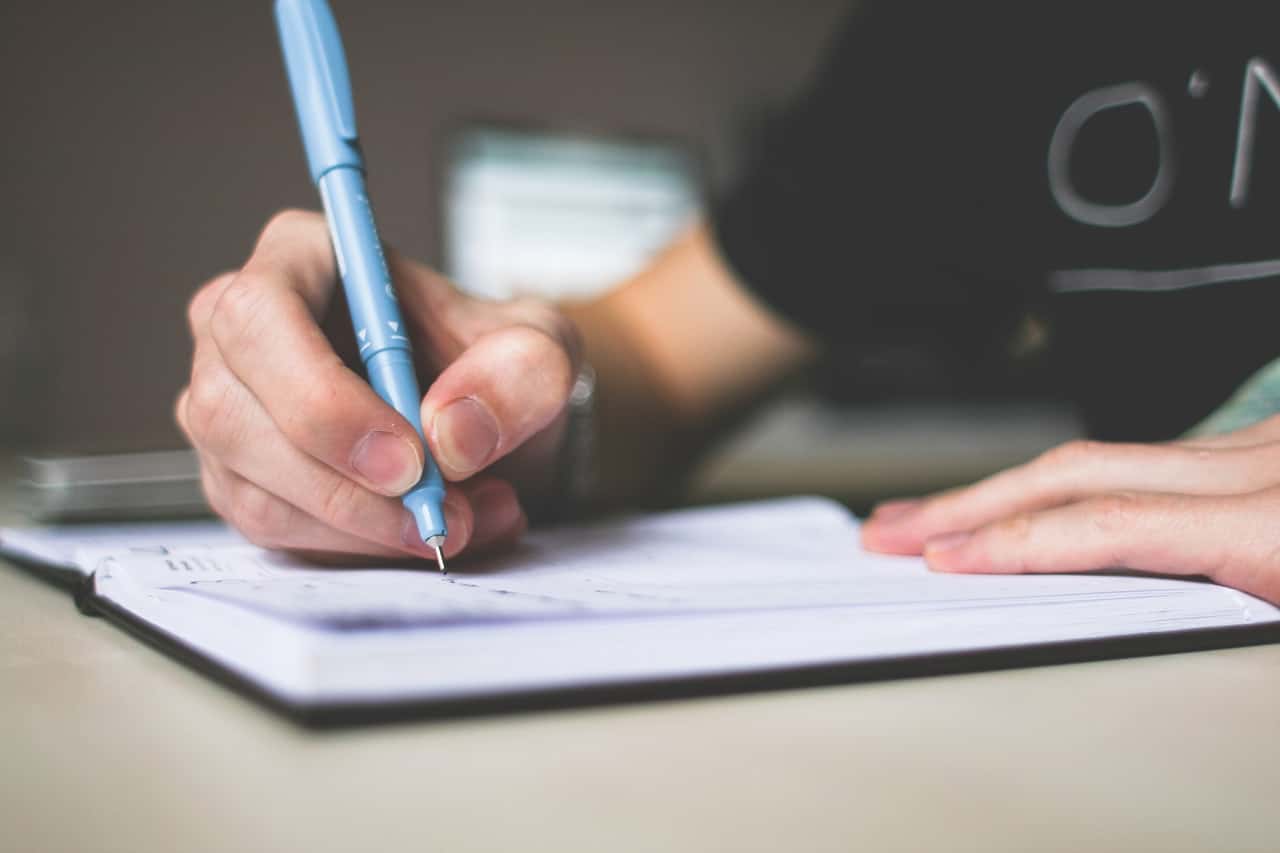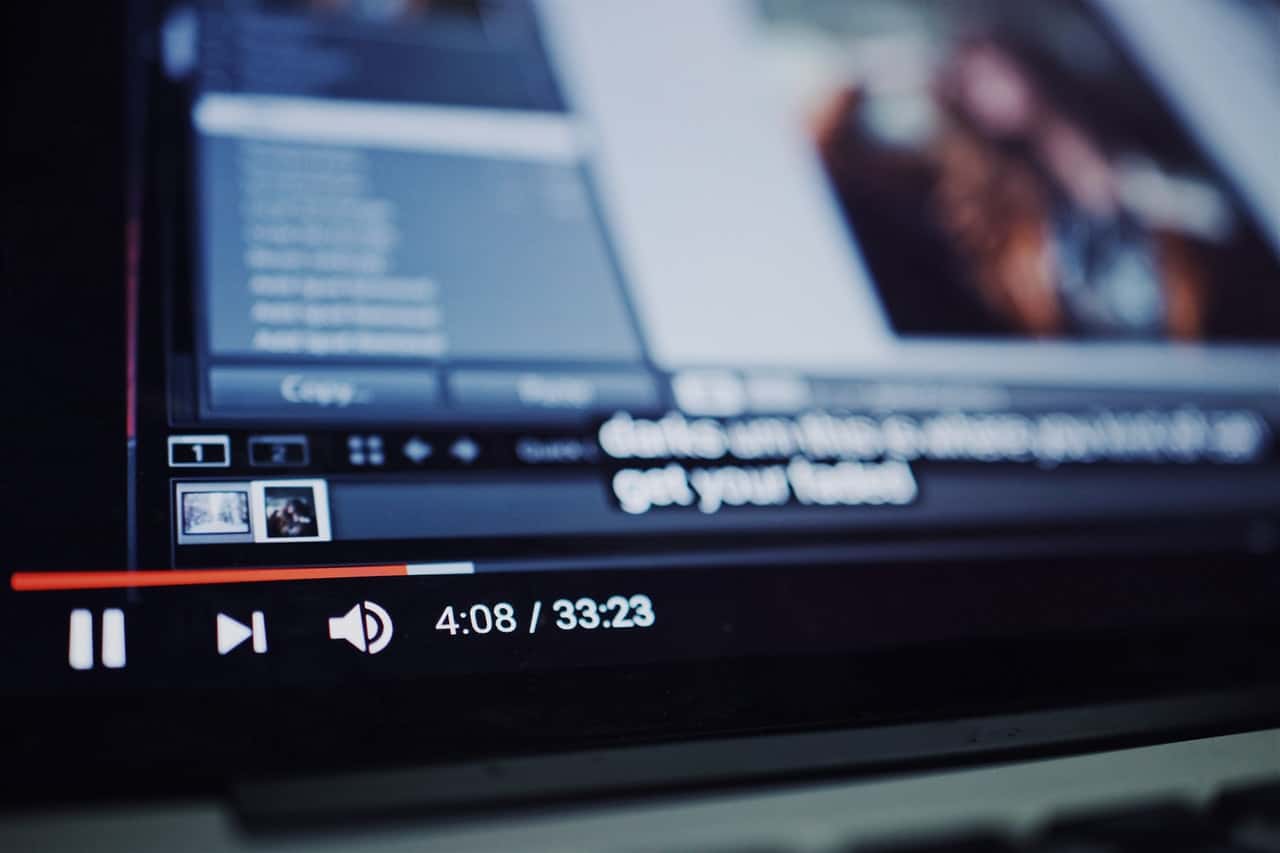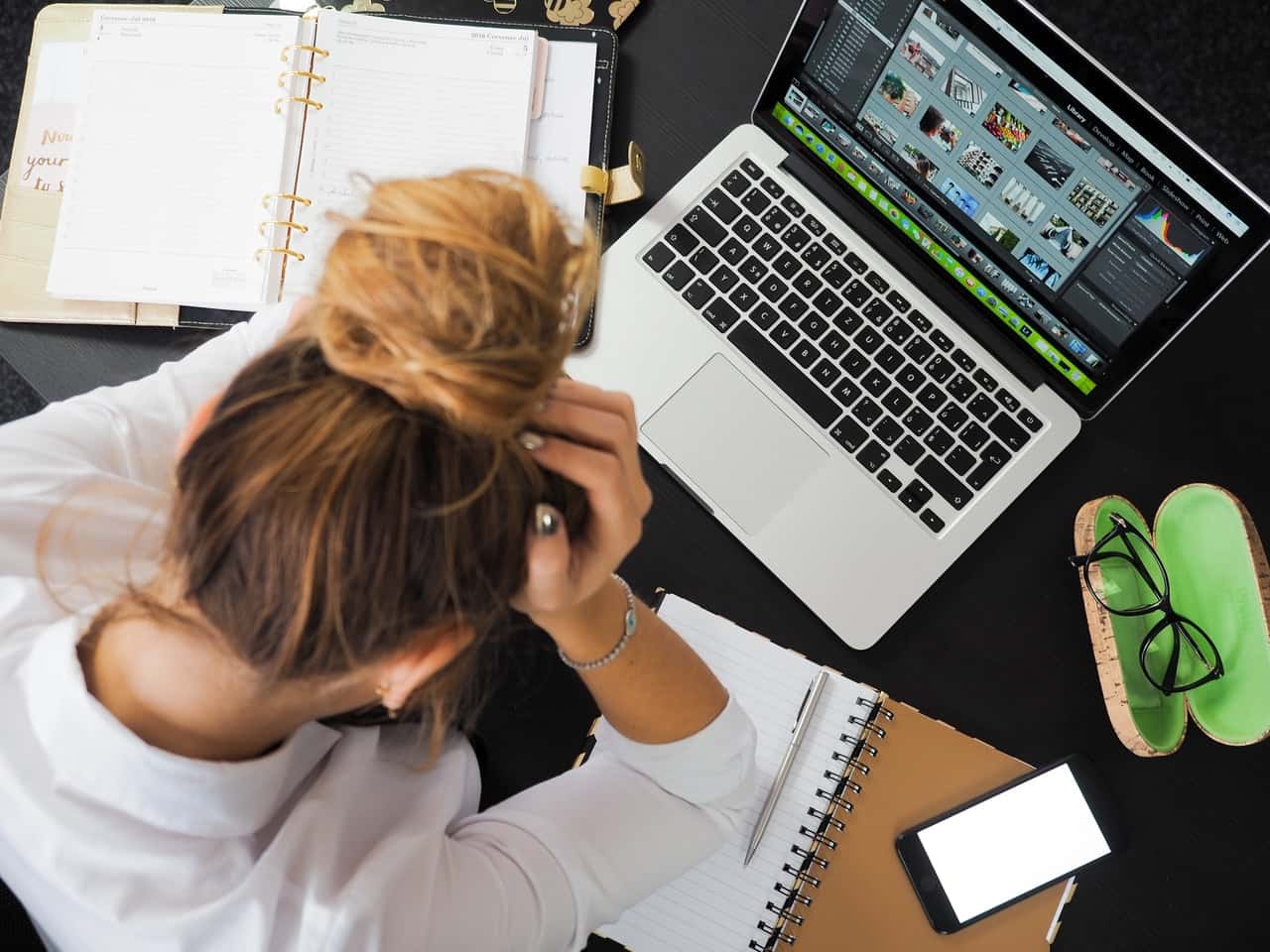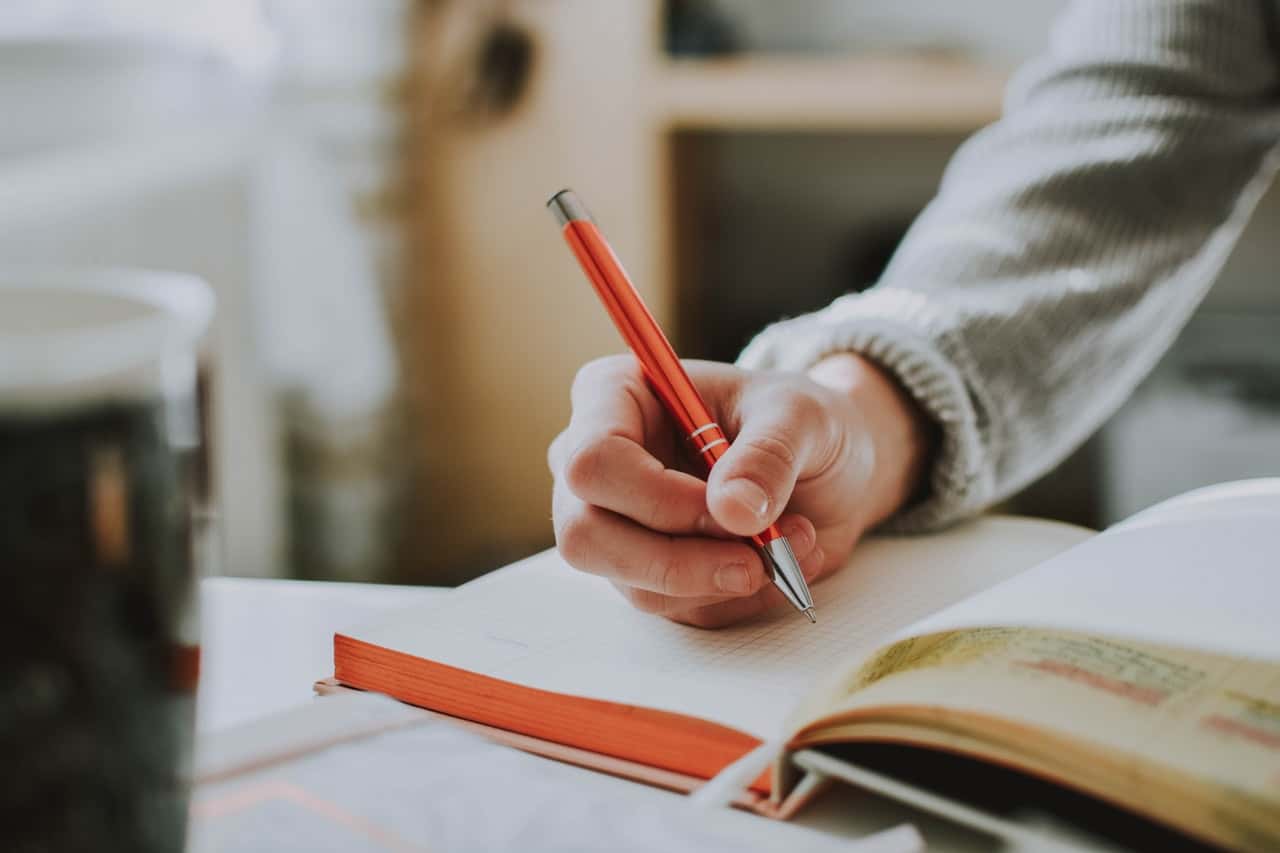GCSEs are coming up fast, and you might not have long left to revise for them. On the other hand, you might have ages to revise – either way, you need some good revision tips and techniques for your exams.
In this article we’ll be taking a look at the best way to revise for your GCSE Maths exams, and the do’s and don’ts along the way.
1. Practice GCSE Maths Past Paper Questions
 Possibly one of the best and easiest ways to revise for GCSE Maths: past papers. In fact, you can use past papers for any GCSE you do – but they work especially well for GCSE Maths.
Possibly one of the best and easiest ways to revise for GCSE Maths: past papers. In fact, you can use past papers for any GCSE you do – but they work especially well for GCSE Maths.
The reason they work so well is because the content on GCSE Maths exams rarely changes. Therefore, past papers are likely to be similar to the actual GCSE papers you’ll get.
More revision of past papers, then, means you’re more likely to succeed in your real exams. I’d suggest that most of your GCSE Maths revision comes from past papers.
Past papers for GCSE Maths are multi-purpose, too. They help you with both exam technique and the actual content you need to know.
To put this in terms of GCSE Maths, the past papers will help you remember the equations and formulae you need, but also how to use them.
A part of GCSE Maths that’s very important is the ability to pick up method marks in an exam. You can get marks for a question without even getting the answer right, and that’s partly why revision from past papers is so good.
For just one method of revision, this is extremely efficient. Your GCSE Maths exams will be a lot easier if you revise a few past papers beforehand.
They’re made even more efficient by the fact that you don’t even have to make them in the first place. Unlike mind maps, flashcards, or some other revision techniques in this list, the content is premade for you.
You’ll usually do a few past papers in your GCSE Maths class preceding your exams. Failing that, you’ll most likely do some exam questions from said past papers.
However, if you really want to go that extra mile, I’d suggest taking matters into your own hands. Take a look online for some examples of past papers that you could work on.
They usually have the answers with them, too. Try looking on your exam board’s website – you should find both past GCSE Maths papers and their mark schemes.
2. Please, Please, Please Utilise The Power Of YouTube
 A very underrated way of revising for GCSE Maths is YouTube. Watching helpful tutorials and challenging your mind through this social media platform can actually be very beneficial to your revision success.
A very underrated way of revising for GCSE Maths is YouTube. Watching helpful tutorials and challenging your mind through this social media platform can actually be very beneficial to your revision success.
There are lots of different creators of GCSE Maths help on YouTube. Even though you may use YouTube to pass the time, there aren’t just cat videos and makeup tutorials on the platform.
You can use videos that walk you through certain techniques, as it’s like having your own personal teacher. The videos you can find on YouTube are actually quite helpful, if you pick the right ones.
Another great thing about the power of YouTube is that you can go through things at your own pace. Unlike a lesson in school, you can pause the lesson to ensure that you’re keeping up with what’s being said.
Speaking of picking the right videos, you need to be careful when watching YouTube tutorials. There’s no way to know that what you’re watching is accurate, so just take care while you’re revising.
Because if you start learning something that’s not right (or just isn’t going to be on your exam) you’ll end up wasting your revision time.
I’ve taken the time to compile a list of the best GCSE Maths tutorial channels on YouTube. Take a look if you’re needing some extra help with your content:
These are probably the best channels for GCSE Maths that you’ll find on YouTube. You can watch other channels if you want, but chances are these are your best bet.
Be cautious when watching YouTube tutorials, as it’s very easy to fall into the trap of watching something else. One video leads to another, and suddenly you’re back to cat videos again.
Try not to let this happen, as it will result in wasted revision time, and therefore loss of marks in your exams.
3. Make Flashcards For Each Of The GCSE Maths Equations
 Another one of the great ways to revise for GCSE Maths is to use flashcards. Flashcards work pretty well in most situations, but how can you use them to your advantage in GCSE Maths?
Another one of the great ways to revise for GCSE Maths is to use flashcards. Flashcards work pretty well in most situations, but how can you use them to your advantage in GCSE Maths?
Flashcards help you to revise facts and little bits of information. You get shown a term or definition, and then have to describe what’s on the other side of the card.
What this looks like in GCSE Maths is an equation on one side of the card, and then the name of that equation on the other. You read the name, and try to come up with the equation matching that name.
That way you’re way more likely to remember your equations in an exam. The visual format of a flashcard means you have a higher chance of retaining information.
It’s a similar kind of effect for mind maps, too. If you look at information and engage your brain, you’re much more likely to remember it than if you were just reading out of a book.
You could make your own flashcards, if you have the time. Making your own flashcards is good because then you can familiarise yourself with them easier.
The downside to this is that you’ll probably already know what’s on the other side of the flashcard before you learn it, and that is not what you want.
You may end up recognising the flashcards instead of actually learning the content. You start to associate the answer with what’s on the flashcard, instead of actually learning the information you need to know.
To avoid this, you could use some pre-made flashcards. I’ve found the best GCSE Maths flashcards you can use, and they’re quite cheap too.
You might also want to give them a try if you’re short on time. Flashcards take a long time to make, and that may not be the best option if your exams are right around the corner.
I’d suggest picking these flashcards up no matter what your situation is, as they can come in handy in all stages of your revision.
4. Really Focus On Your Weakest GCSE Maths Topics
 Quite an important tip that some students gloss over is to revise your weakest maths topics. It may not be much fun, but it will definitely help you out in your exams.
Quite an important tip that some students gloss over is to revise your weakest maths topics. It may not be much fun, but it will definitely help you out in your exams.
If you don’t work on your weak spots in GCSE Maths, you’ll find yourself losing marks in your exams. You’ll have lots of gaps in your knowledge, and this will lead to your results looking worse than they should.
It’s important to work on your weakest GCSE Maths topics because of the way the subject works. Loads of different areas tie in with each other, so if you’re not confident in one area, chances are you’re not in many others.
One mistake many students make is revising what they’re already good at. This can be useful, and revision is never a bad thing, but it’s probably better if you revise your weaker subjects.
Revising your strengths can give you a false sense of security in GCSE Maths. You’ll end up thinking you’re going to ace the exam, but in reality, there’ll be questions you won’t have a clue how to do.
If you’re worrying about the topics in GCSE Maths you might not know, don’t panic. As I said before, you can use mind maps to work out what you’re missing.
And there’s always the content lists for your GCSE Maths exams. If you look online for your GCSE Maths exam board, they should have a list of what you have to know for your exam.
Any revision is better than no revision. If you really can’t muster the strength to create a set of flashcards or whatever, then just reading a textbook is better than nothing.
As aforementioned, these GCSE Flashcards are good for revising any of the maths topics at GCSE level. #
5. Make Sure You’re Implementing The Right Techniques When Revising For GCSE Maths
 There are certain do’s and don’ts of revision, and it’s important you know what they are. If you don’t, your revision time will be ineffective.
There are certain do’s and don’ts of revision, and it’s important you know what they are. If you don’t, your revision time will be ineffective.
Before you continue reading, I highly recommend you check out our favorite (and most effective) revision techniques for GCSEs and A-Levels.
Perhaps the most important technique to understand is the pomodoro technique. It sounds odd, but is actually essential to the success of your revision (and eventually exams).
The pomodoro technique is a useful revision style that can be applied to any revision technique. Flashcards, mind maps, YouTube tutorials, the pomodoro technique covers it all.
The pomodoro technique basically means revising for short periods of time, with short breaks in between. Many revision styles are based around this concept, and for good reason.
Taking short breaks between revision sessions has been proven to increase productivity. What this means for you is that your brain will be more engaged with your revision, and you’re less likely to lose focus.
By taking breaks, you give your mind a chance to rest. Revising can be hard work, and so it’s important to give your brain the time it needs to recuperate.
The usual amount of time recommended to revise before taking a break is 25 minutes. Any longer than this and you start to lose motivation and focus, meaning your revision is less efficient.
Try not to make your revision sessions too much shorter than 25 minutes. Around the 10 minute mark, your revision time isn’t enough for you to successfully take in any information.
After your 25 minutes of revision, you should take a break for 3-5 minutes. A break longer than 3-5 minutes will lead to your loss of motivation as you start to wish you were doing other things.
As I said, the pomodoro technique can be applied to any revision method you choose. Just make sure you get your timings right for you, and then you’re on to a winner.
Find out more about the pomodoro technique here, on our handy list of 7 revision techniques for GCSE and A-Level.
6. Try Not To Leave Your Revision Until The Last Minute…
 Whatever you do, do not leave your revision until the last minute. This is possibly the worst thing that can happen for your GCSE Maths exams, so make sure you avoid it at all costs.
Whatever you do, do not leave your revision until the last minute. This is possibly the worst thing that can happen for your GCSE Maths exams, so make sure you avoid it at all costs.
Leaving revision until the last minute leaves you unprepared for your exams. You won’t have the same knowledge that other students have been building up, and you’ll be left in the dust on results day.
It’s much better to start your revision early, giving yourself the time you need to prepare. Everyone needs to revise, and if they tell you they don’t? They’re lying. You must start your GCSE Maths revision at the right time!
Many students across the country either fail their GCSEs or don’t achieve what they should have done due to lack of revision. You only get to do your GCSE Maths exams once, so make sure you take them seriously.
Trying to cram information into your short-term memory before an exam is a bad idea. You’re much less likely to remember it compared to if you’d have revised beforehand.
Cramming information before an exam can overload your brain, leaving you confused and worse off in an exam. You can even get what you’ve ‘revised’ mixed up with what you already know, and then you’re really in trouble.
However, some revision is better than none at all. If you found you have left it to the last minute, there’s still some things you can do to help.
The most important thing is not to panic. Revise hard, but don’t overwork yourself – if you’re too stressed out and tired in an exam, you’re more likely to fail.
Just revise like normal, and try not to worry about your exams. With GCSE Maths, your grade gets spread out across 3 exams – so 3 chances to prove yourself.
I’d suggest working on your weakest topics, too. That way you give yourself the best chance of succeeding in the exam, as you’re prepared for whatever questions come up.
If you are worried about when to start revising, check out our article on the best time to start revising for GCSEs.
7. Get Comfortable (And Fast) With Your Calculator
 Your calculator is your saving grace when it comes to GSCE Maths exams. It makes everything a lot easier, and is essential for two out of three of your exams.
Your calculator is your saving grace when it comes to GSCE Maths exams. It makes everything a lot easier, and is essential for two out of three of your exams.
That’s why it’s so important that you get to grips with it before you take your GCSE Maths exams. The better you are at using your calculator, the more chance you have of passing your exam.
The more skill you have with your calculator, the faster you’ll be – leaving more time to check through answers. You’ll also have less chance of getting answers wrong, so it’s a win-win.
There’s a few calculators that are perfect for both GSCE and A-Level Maths. If you get one like that, then it saves you having to re-familiarise yourself with it in college.
The Casio FX-991EX is perfect for this. You can use it for both GCSEs and A-Levels, and it’s not that tricky to use, either.
8. Listen To What Maths Topics Your Teachers Say You Need To Work On
 A crucial thing to do for any GCSE is listen to your teachers. They usually know what’s best, and more importantly – what’s best for you.
A crucial thing to do for any GCSE is listen to your teachers. They usually know what’s best, and more importantly – what’s best for you.
Your teachers will know your strengths and weaknesses, as they’re the ones that have helped you improve your maths skills. They’re also the ones who have had to mark all your silly mistakes…
Teachers probably have the best insight of anyone into what you should be revising, apart from you. You might think you’ve got your revision all sorted out, but it can sometimes help to have a second opinion.
Your GCSE Maths teacher/teachers have probably also been teaching the course for many years. They’ll have had experience with students similar to yourself, and so might already have some advice they can give you.
Teachers will likely have an insight into what will be on the exam, too. The exams don’t change much over the years, but the content does differ slightly.
Your GCSE Maths teachers will have knowledge of what’s coming up on the exam, as they’ve seen what’s come up before it. You could probably try and guess, but your guess would be nowhere near as accurate as your teachers.
Therefore, it’s important to listen to what your teachers say and revise accordingly. Your GCSE Maths teachers won’t be there forever, so make the most of it while you can.
However, it’s important to remember that teachers don’t always have the best idea of what you need to revise. They can point you in the right direction, but it’s you that needs to decide what’s best for you.
Realistically, you should use your teacher as a guide to what will be on the exam and what you should be revising. Think about your strengths and weaknesses, what the teacher has said, and revise accordingly.
9. Stay In School For Extra Maths Sessions
 It may sound boring (no one wants more school) but extra revision sessions can help. Staying at school to revise GCSE Maths is a highly underrated revision technique, so ensure you make the most of your opportunities.
It may sound boring (no one wants more school) but extra revision sessions can help. Staying at school to revise GCSE Maths is a highly underrated revision technique, so ensure you make the most of your opportunities.
Staying after school for some extra help in GCSE Maths can sometimes be more beneficial than you studying on your own, if done right.
Having your teacher there with you, giving you more intensive help than in class, can be a good tool for you to use. You’ll get more help because there’s less people in the class to distract the teachers attention.
Not only that, but there’s also less chance that what you’re learning is incorrect too. The content is coming straight from a qualified teacher, so no dodgy YouTube videos or skewed flashcards.
Most schools offer help sessions for GCSEs, and GCSE Maths sessions usually run once or twice a week. This means an extra couple of hours of maths every week.
It may not seem like a lot, but the hours stack up – especially when it’s one of the most effective revision techniques.
Even so, you might want to pair it up with some of the other techniques on this list. Make sure your revision isn’t just at school, make some flashcards or create some mind maps at home too.
You can invite friends to your GCSE Maths catch-up sessions too. Group work can be an effective form of revision, for both you and whoever else takes part.
Just make sure you actually focus on the work and don’t just chat with your friends. GCSE Maths revision sessions are for just that, revision – not a social meeting place.
If you can go to revision sessions, actually revise, and also do some work at home, you’ll be set for your GCSE Maths exams. Just make the most out of every opportunity – especially extra maths sessions at school.
10. Start Teaching Other GCSE Maths Students Topics They Don’t Understand
 We’ve all been in that situation, where you’ve absolutely smashed a topic in maths, and your friend doesn’t quite understand it. You come in to save the day, and improve your understanding at the same time.
We’ve all been in that situation, where you’ve absolutely smashed a topic in maths, and your friend doesn’t quite understand it. You come in to save the day, and improve your understanding at the same time.
Helping out other students with GCSE Maths questions can actually be part of your revision. You may not realise it, but teaching other students who aren’t as adept as you will strengthen your knowledge of GCSE Maths.
The reason it works so well for your revision is because it forces you to go over your own understanding to help someone else’s.
Your brain is made to go through that learning curve again with someone else, and this means you’re more likely to remember everything you need to know.
It’s all about strengthening those neural links you have between bits of information. Successfully pull that off, and you’ll be on your way to success in exams too.
Be careful, though. If you don’t understand the topic you’re trying to teach, you might end up messing up both you and your friends.
Teaching content you’re not 100% sure on is a bad idea. You may end up teaching the wrong things to your unknowing friend, and mess them up for their exam.
Not only that, but you’ll enforce potentially incorrect knowledge in your mind too. It’s bad enough making your friends do worse in their exams, but you especially don’t want to do that to yourself.
An easy way to avoid this is to take mini tests on GCSE Maths topics, and then only help other students If you get above 90%. That way, there’s less chance you’ll get anything wrong.
You can ask your teacher for some mini tests, if you want to challenge yourself. These mini tests will also help your revision, but I’ll talk more about that later in the article.
11. Create Mind Maps For GCSE Maths Topics
 A great way to revise any subject is to create a mind map for it. Mind maps work especially well for GCSE Maths, as I’ll come to explain.
A great way to revise any subject is to create a mind map for it. Mind maps work especially well for GCSE Maths, as I’ll come to explain.
When you create a mind map, you basically empty your brain of all the information you already know. You’ll write down all the crucial bits of knowledge for a subject, and maybe even draw a few diagrams too.
Doing this allows you to identify the gaps in your knowledge. You’re able to see what you don’t know, and therefore work to improve it.
Mind maps are important, because you need to work out what you’re not so confident on before your exam. If you don’t work on your weaknesses, you won’t be prepared for your exams.
A good way to create mind maps is to focus on a specific area of maths, and write down what you know for that area. That way you avoid overcrowding your mind map and getting lost in your revision.
When I revise using mind maps, I choose specific topics in maths. For example, I’d write all about quadratic graphs and how to use them on one mind map.
It helps if you create loads of mind maps for GCSE Maths, as there’s so many topics you’ll need to master.
GCSE Maths has probably the largest amount of content of any GCSE, and therefore will need the most revision out of any of your subjects (even if you’re really good at it).
Mind maps are a great way to go about revising for maths, but don’t rely solely on them. Make sure you mix up your revision with some of the other tips on this list.
I’d suggest using mind maps to identify the gaps in your knowledge, and then trying something else to work on those gaps. That way you can switch up your revision and keep your brain engaged.

Good to know,